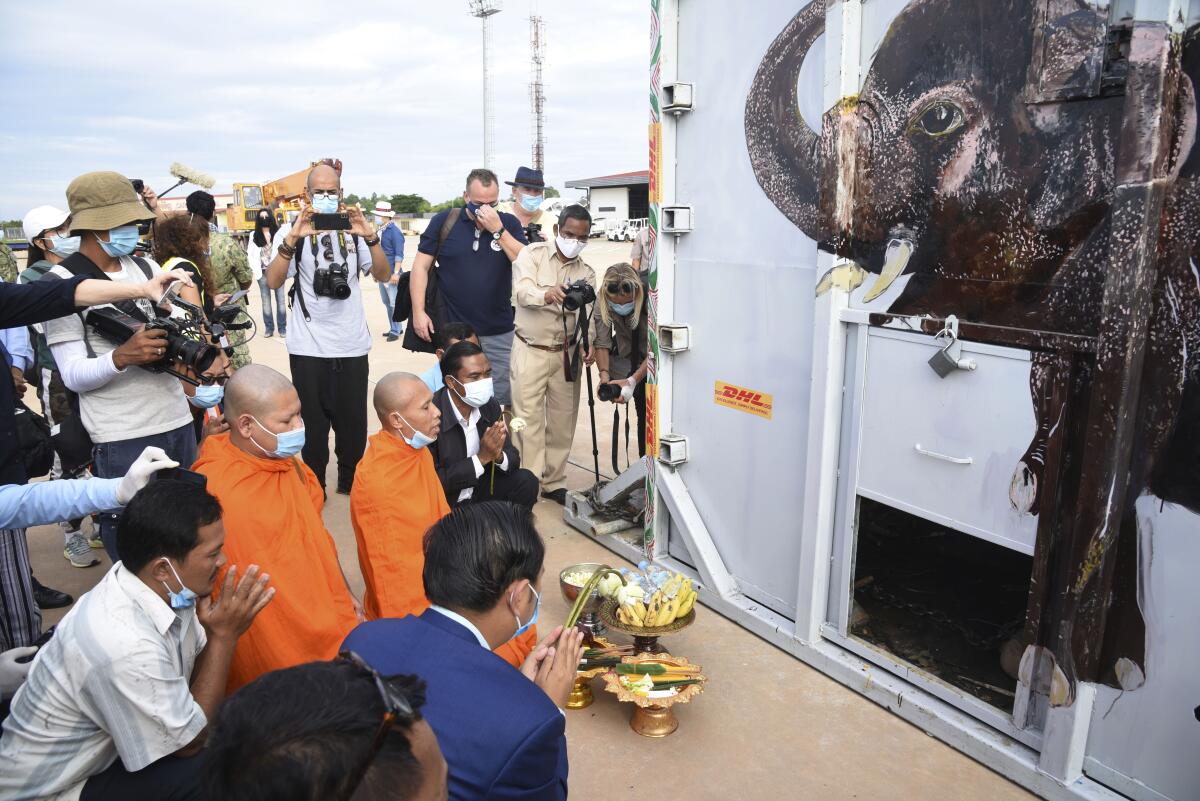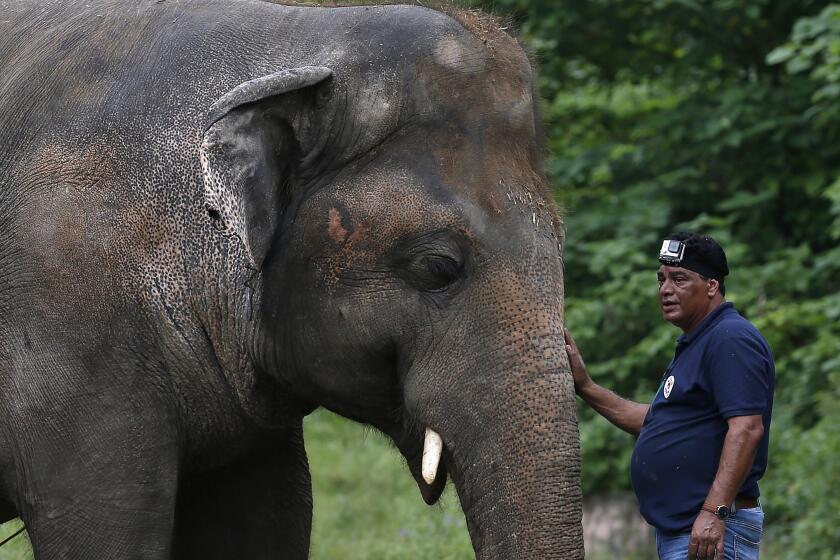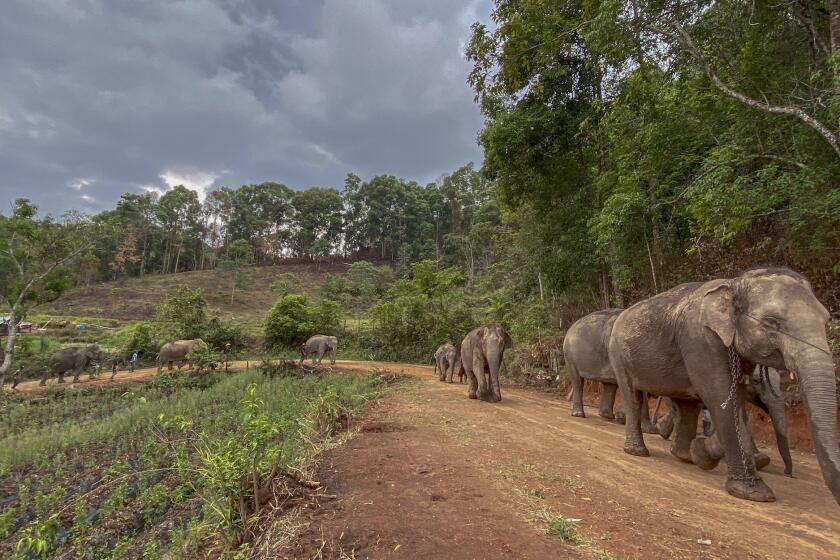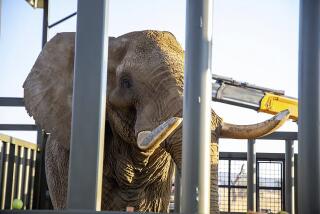With Cher’s help, ‘world’s loneliest elephant’ arrives safely in Cambodia

- Share via
PHNOM PENH, Cambodia — The pachyderm dubbed the “ world’s loneliest elephant ” after languishing alone for years in a Pakistani zoo was greeted on his arrival in Cambodia on Monday by chanting Buddhist monks and was then sent on his way to a wildlife sanctuary.
The plight of Kaavan the male Asian elephant has captured worldwide attention, including from singer and actor Cher, who has been closely involved in the animal’s rescue and was in Cambodia for its arrival.
Like other travelers during these times, Kaavan needed to be tested for COVID-19 before flying. Once the hefty creature’s large metal crate was safely on board, Kaavan was provided with in-flight snacks — 440 pounds of them — for the seven-hour journey.
Kaavan appeared not to be stressed out during the flight, eating food and even getting a little bit of sleep standing in the crate, said Amir Khalil, a veterinarian who accompanied the elephant and works with Four Paws, the Vienna-headquartered animal rescue group that organized the move.
“He behaves like a frequent flier. The flight was uneventful, which is all you can ask for when you transfer an elephant,” Khalil said.
The 36-year-old, 9,000-pound passenger received a warm welcome on arrival in Cambodia from officials, conservationists and the Buddhist monks, who chanted prayers for Kaavan’s harmony and prosperity.
Pop star Cher leads effort to rescue 35-year-old Kaavan, dubbed the world’s loneliest elephant, from captivity in Pakistan.
Kaavan, a 1985 gift from Sri Lanka to Pakistan, had been living in the Marghazar Zoo in Islamabad with a partner, Saheli, which died in 2012. The zoo fell on hard times, and conditions got so bad that a court in the Pakistani capital ordered the zoo closed in August.
Cher’s animal welfare group Free the Wild, has worked with Four Paws and the American syndicated columnist and philanthropist Eric Margolis to relocate Kaavan, a mission that’s cost about $400,000.
According to Four Paws, very few adult elephants have ever been relocated by plane, so preparations were arduous.
Veterinarians and elephant experts working for Four Paws spent three months in Islamabad, coaching Kaavan three times a day on how to enter and exit the four-ton travel crate safely and without stress. The crate includes a system that can hold up to 53 gallons of urine.
The millions thrown out of work in Thailand by the coronavirus crisis include elephants that need tourist money to feed their voracious appetites.
Kaavan was also dangerously overweight because of his unsuitable diet of about 550 pounds of sugar cane each day. With Khalil’s help, Kaavan lost 1,000 pounds over the past three months.
Kaavan’s wounds are emotional as well as physical. The animal would spend days wagging its head from side to side, a stereotypical sign of boredom and misery in an elephant, said Martin Bauer, a spokesman for Four Paws.
The loss of mate Saheli took a toll on Kaavan’s mental health. Elephants are social animals that thrive on the company of other elephants, Bauer explained. For Kaavan, the last eight years have been akin to living in quarantine — something the world has come to understand all too well amid the COVID-19 pandemic, he said.
Late Monday, Kaavan was being driven by truck to a camp in northern Cambodia and should be able to leave the crate Tuesday.
“Once Kaavan feels at home in a controlled setting, he will be released in a wildlife sanctuary, in Oddar Meanchey province, in the northern section of Cambodia, where some 600 Asian elephants live in peace and tranquility,” said a statement by Neth Pheaktra, a spokesman for Cambodia’s Environment Ministry. “Pachyderms can live for many years, and even at 36, we hope that he will contribute to the gene pool.”
More to Read
Sign up for Essential California
The most important California stories and recommendations in your inbox every morning.
You may occasionally receive promotional content from the Los Angeles Times.















